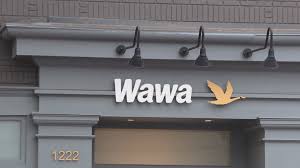Popular Italian restaurant chain files for Chapter 11 bankruptcy
According to The Street ,The fast-casual restaurant sector has faced significant challenges in the years following the Covid-19 pandemic, which led to widespread closures and financial strain across the industry.
While many restaurants adapted by shifting to delivery, takeout, and drive-thru models, the financial losses caused by the pandemic’s impact on in-dining experiences led several chains to file for bankruptcy protection or liquidation. Some restaurant chains took years to reach the point of financial distress, culminating in Chapter 11 bankruptcy filings.
One of the most notable cases was Red Lobster, which filed for Chapter 11 bankruptcy on May 19, 2023, and permanently closed 93 locations. Rubio’s Coastal Grill, citing California’s AB 1228 law, which raised the minimum wage for fast-food workers at chains with over 60 locations to $20 per hour, filed for Chapter 11 bankruptcy on June 5. The Mexican fast-casual chain also closed 48 of its California locations. Before the filing, Rubio’s had 134 locations across California, Arizona, and Nevada.
The Italian restaurant sector has also seen its share of financial struggles. FoodFirst Global, the parent company of Brio Tuscan Grill and Bravo Cucina Italiana, filed for Chapter 11 in April 2020, following pre-existing challenges and the devastating effects of the pandemic. Two months later, Earl Enterprises purchased the Italian restaurant brands. Similarly, Fired Up, the owner of Johnny Carino’s, filed for Chapter 11 bankruptcy in July 2016, marking its second bankruptcy filing after an initial one in 2014.
Sbarro, the longstanding mall-based Italian fast-food chain, filed for bankruptcy in both 2011 and 2014, struggling under the weight of high food, labor, and lease costs. The company, which operates over 700 locations globally, was forced to restructure its business.
On August 4, 2023, Buca di Beppo, the popular Italian restaurant chain, filed for Chapter 11 bankruptcy protection. The Orlando, Florida-based chain, which operates 44 core locations across 14 states and two international locations, aims to reorganize with the support of its lenders. Buca di Beppo has faced a sharp decline in sales, rising food and labor costs, and ongoing staffing challenges, which led to the closure of 13 underperforming locations, including those in Sacramento and Salt Lake City.
Rich Saultz, president of Buca di Beppo, emphasized that the Chapter 11 filing is a crucial step towards securing the brand’s future. “This move is the best next step for our brand,” said Saultz. “By restructuring with the continued support of our lenders, we are paving the way toward a reinvigorated future.”
Buca di Beppo, established in Minneapolis in 1993, grew to 95 locations by 2013 before beginning a series of closures. The brand was acquired by Robert Earl’s Planet Hollywood International in 2008 and is currently part of Earl Enterprises.






